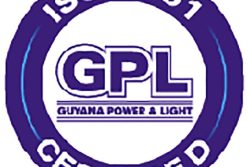Why would the Memorandum of Understanding (MoU) between the government – represented by Go-Invest – and the Buddy’s investor, Omprakash Shivraj contain a non-disclosure clause in this era of supposedly open and transparent governance?
Anyone reading the contents of the news item in the March 4 Sunday Stabroek on the MoU might be puzzled as to what required secrecy on a straight-forward project to build a hotel.
The publishing of the MoU by the government would not have given away trade secrets or exposed sensitive financial information to prying eyes. It contains none of that. So one must look more closely at the document and three things stand out.
First, other interested investors may well look at the MoU and ask themselves on what basis did the government arrive at the conclusion that the Buddy’s investor was the fittest person to enter into a contract with for this prestigious project. Thus far there is no documentation that an adequate public tendering process was instituted here or adequate due diligence done. If the investor was handpicked that is a completely different matter and the public has a right to a convincing explanation particularly since of late taxpayers’ money has been allocated to this project when it was the investor’s responsibility to be fully financed. Indeed, the MoU says that the investor shall “Provide financing in all areas other than those that have been designated as Government of Guyana Responsibilities”. Bridge financing for this project is not an inscribed government responsibility. It has also been established that no other host country in the region has had to advance money to hoteliers and the accommodation arrangement is essentially between the hotel and Cricket World Cup/International Cricket Council.
Second, the MoU indicates some significant promises to Buddy’s. On a minimum investment of US$8M the investor has been granted a corporate tax holiday for five years beginning from the first year of commercial operation. Further, to the extent permitted by law Buddy’s has been allowed customs duty, consumption tax and purchase tax exemptions on machinery, raw material and vehicles for the project. The company will also be permitted to employ non-Guyanese to a maximum of 15% of its employees in the managerial, technical and professional areas. In addition, the MoU says that the state land on which the hotel has been erected will be sold to the investor at $8M per acre.
Third – perhaps the most troubling of all – is the two-sentence clause 4.3 which says that the government shall “A(s) far as is permitted by the laws of Guyana, facilitate the company’s request to operate a casino on the said hotel premises”. And there we have it. The genesis of the sudden government interest in casinos and the ensuing public opprobrium was not founded in some considered study by the tourism, finance and home affairs ministries about the impact of casinos. It was founded upon the clear commitment that this government would facilitate the company’s request to run a casino. How does a government facilitate any such request? It ensures that the relevant law is passed so that what was once illegal would now be legal. That is exactly what the government has since done notwithstanding the widespread public dissent. Did the government at any stage of the discussions with the Buddy’s investor contemplate that it should have mobilised a considered opinion on casinos before committing to them? It doesn’t appear so. Why couldn’t the hotel be built without a casino considering the casino’s inherent vulnerabilities to money laundering and our patent incapacity to police this problem as so lucidly highlighted by the absence of any conviction of a major drug trafficker or money launderer? That was the nettle to be grasped by the government but it clearly wasn’t. The government then proceeded to pretend that it would have a full consultation with the religious groups on this matter presumably still open to changing its mind on the subject of casinos. Months went by and there was no move to hold a consultation. When prodded on this matter, the government hastily convened slipshod discussions that left the religious representatives completely unimpressed.
Despite the public discontent, the government went full speed ahead and the amended Laws of Guyana have now paved the way for casino gambling and its in-built ramifications.
Major public policy must never be driven by a promise to one or two investors. Major public policy must have its real ferment first in the highest law-making body of this land – Parliament. Otherwise, the government is derogating this institution despite its frequent murmurings of enlivening the National Assembly and making it a truly deliberative body.
History will eventually recall that the headwaters for casinos in this country was not a no-holds barred debate in the House, followed by select committee review and the summoning of public hearings but rather conversations at influential levels of government with select businessmen.
Further, secret MoUs of this sort create the environment and conditions for ill-considered decisions to be made and conjure opaqueness in what should really be open and transparent government. Such manoeuvres will always cast a shroud of distrust and discontent in the public when there should be none.
In an interview with Stabroek News on March 2nd, visiting OAS Secretary General Jose Miguel Insulza made a telling point about transparent governance. Speaking generally, he said “If the government conducts its business secretly no one can say that it is corrupt or it is keeping the money but it is not a good thing in a democracy to transact business in secret. That is why I said that transparency and corruption are not synonyms but they have linkages”.




